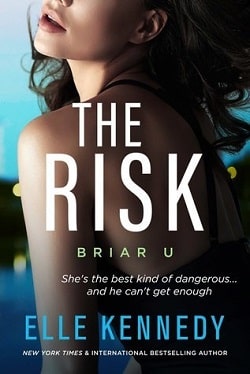THE COURTHOUSE HAS OFFERED me the use of an empty conference room for a couple of hours. But I see Norma Banks waiting on a park bench, smoking away.
I cross the street to the small park where she’s sitting, looking trim and fit for someone her age, sucking on what my father used to call a heater.
“The little snots wouldn’t let me smoke inside the building,” she says as her form of greeting.
“The nerve.”
I sit, trying to position myself upwind of her on the small bench. She might be a couple of inches over five feet tall, soft white hair that looks as if it sprouted from a cotton tree, accentuated by a pink sweater and blue jeans and running shoes colored both pink and blue.
She knows about my illness—and about my ongoing hope of being a permanent survivor of it. But I have this feeling that if I ask her to stop puffing away, she’ll tell me it’s a little late for me to be clutching my pearls over secondhand smoke.
Norma Banks just smiles, mostly with eyes the color of the sky.
“Don’t tell me. You quit smoking a long time ago.”
“I was one of those naïve people who didn’t write off the surgeon general as being an alarmist,” I say.
“Your loss.”
But I smile back at her.
“By the way,” I say. “Thanks for agreeing to work with me.”
“About time you called me,” Norma Banks says. “I was wondering when you were going to wake the fuck up.”
I instantly experience her well-known ability to read jurors even after they’ve been selected—not using technology, only those blue eyes and her fierce intelligence and her instincts.
Neither her age nor her granny looks, however, alter the fact that Norma Banks was—and is—one of the most prominent jury consultants in the country. She’s worked with everybody from New York City mob lawyers to big-ticket show-business attorneys in Hollywood. Every time there is a big trial, she hits the talk-show circuit, though after dropping a couple of f-bombs on Court TV, she’s learned to watch her language.
Having turned down the chance to work with O. J. Simpson’s Dream Team, she memorably commented on-air to CNN: “If the gloves don’t fit you must acquit my ass.”
Katherine Welsh has enough forensics to make them party favors. She has a murder weapon with Rob Jacobson’s prints everywhere except inside the gun barrel. And now—Jimmy Cunniff said this was piling on—she has the photograph of him leaving the house that night.
My client continues to say it was all a setup. As you can imagine, I get a lot of that in my line of work. But he’s not the reason I’m skeptical about the State’s case against Rob Jacobson. The reason I’m skeptical goes back to something my father told me one time.
“You want to know the only sure thing in this world?” he said. “That thereareno sure things.”
“You know you got lucky with this guy the first time around,” Norma Banks tells me now.
She reaches into the ancient leather bag next to her, grabsa red-and-white Marlboro box. It was my father’s brand, too. He was another one who thought that warning on the side of the boxes was for suckers until he dropped dead of a heart attack on a barroom floor.
She lights another cigarette and inhales deeply and then sighs as if she might have briefly glimpsed God.
“With all due respect,” I say to her, “I like to think I make my own luck.”
“That’s a load of bull and you know it,” she says.
I am smiling again. I can’t help myself.
“Are you under the impression that all of my previous cases somehow won themselves?” I ask her.
“And areyouunder the impression that you’ve been involved in more murder cases than I have?”
She blows some smoke in my direction. I move my head to the side to avoid it the way you’d slip a punch. At least she’s blowing some kind of smoke at me.
“I know you think you’re one tough mother,” she says. “But it’s my job to read people. And what I’m reading with you is that you’re scared right out of your designer jeans.”
“They’re actually Levi’s,” I say. “But I see your larger point.”















